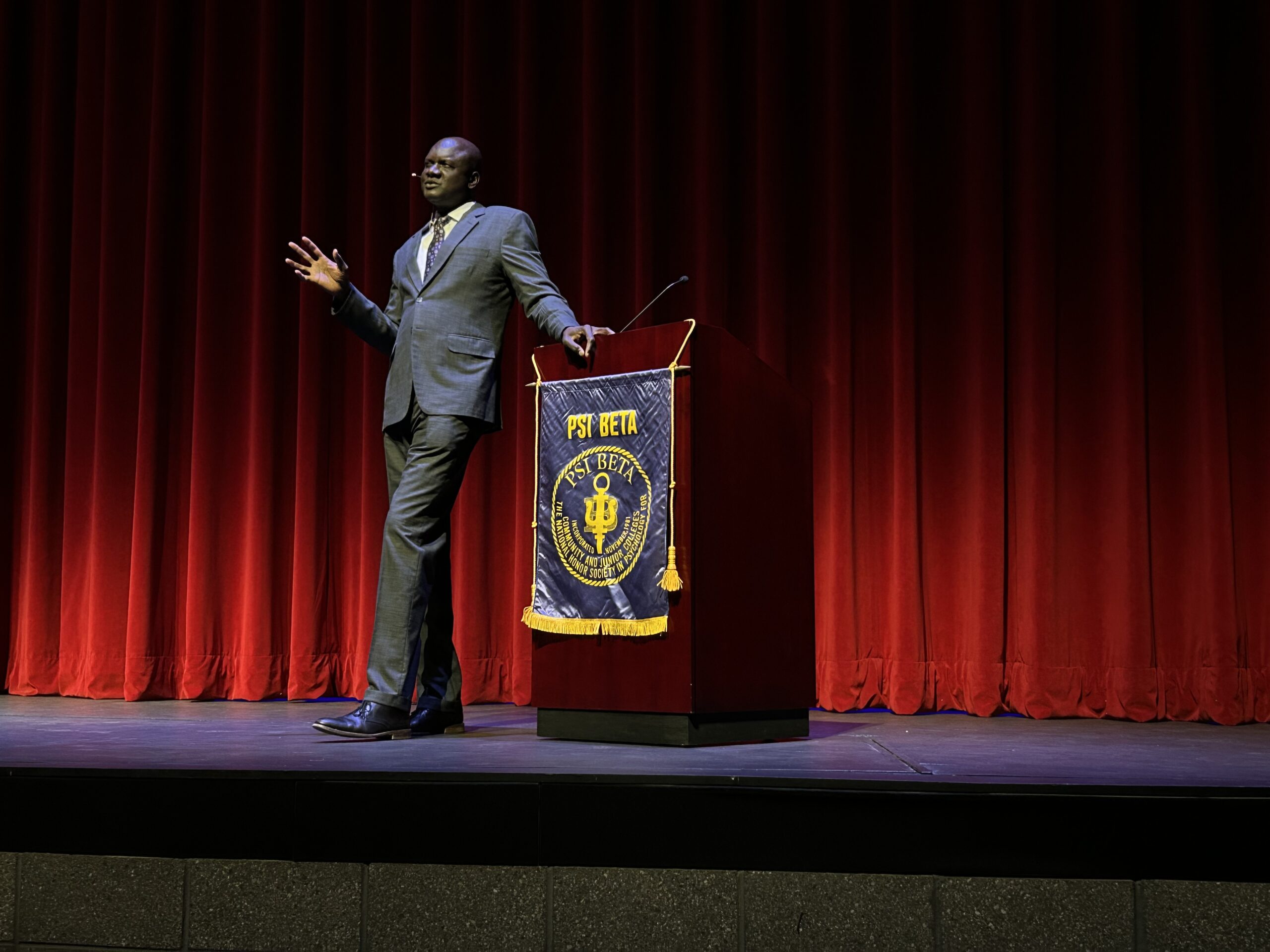Jewish singer integrates music and history
Nathan Humpherys
Saul Kaye’s “Jewish Blues” performance at MCC provided an intriguing mixture of blues based pop and Jewish story telling.Kaye’s set was made up of original songs along with an array of cover songs from artists like contemporary folk singers Ray LaMontagne and John Mayer. Accompanied by his acoustic guitar and live loops, most of Kaye’s songs focused on love, desire and unrequited affection.
With his pop-like tenor voice, stick figure frame, faded black jeans and t-shirt, Kaye looked and sounded more like a pop-rock singer, songwriter than a rail-riding blues man.
Several of his songs, however, dove heavily into his blues influences.
“You may be wondering what the heck Jewish blues is,” Kaye said to the small, but attentive crowd at the cafeteria lounge next to Grounds for Thought.
“Jewish Blues comes from cultural experiences. Take Jewish history and put it together with African slavery,” he said.
To emphasize the similarities, Kaye played a song about two Israelites debating whether or not they should follow Moses out of Egypt, accompanied by a mix of traditional Jewish melodies and harmonies and flat-picked country blues.
“Only twenty five percent of the Jews left Egypt to follow Moses,” Kaye said.
At one point, he refered to Moses as “that crazy hippie guy” through the voice of one of the characters in the song.
Other highlights of the performance included a genre-bending number about lust at first sight.
It opened with instrumentation rooted in traditional Jewish music and then segued into heavy reggae strumming a la acoustic Bob Marley.
Kaye’s fret board work was polished and precise and while it did reflect his blues influences in its composition, it often lacked the grit found in the guitar playing of blues greats like T-Bone Walker and Muddy Waters.
An exception to this was the song “Black Water Fever” where Kaye’s delta inspiration came out in full force as he told the story of his great-grandfather who contracted black water fever, a severe form of malaria, in Africa where he worked as a mediator between warring tribes.
The only thing his great grandfather could do was sleep in an isolated hut and drink Zulu beer while he sweated the fever out.
Kaye admits that the prospect of lying down and drinking beer nonstop all day doesn’t sound like too much of a punishment but said that this is just one example of how he integrates storytelling into music.









